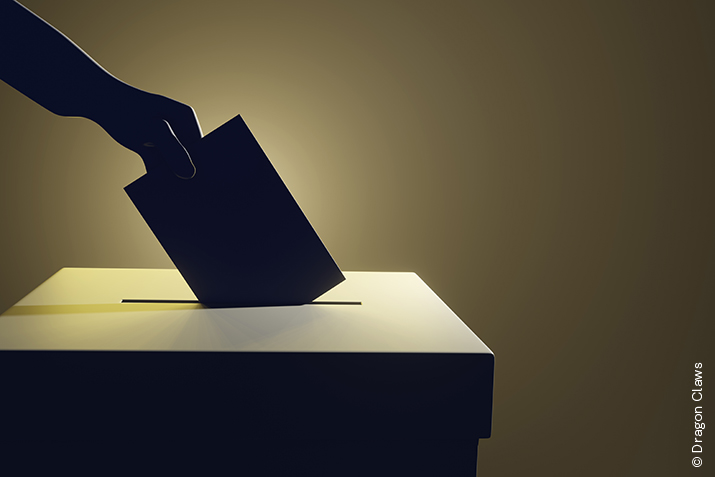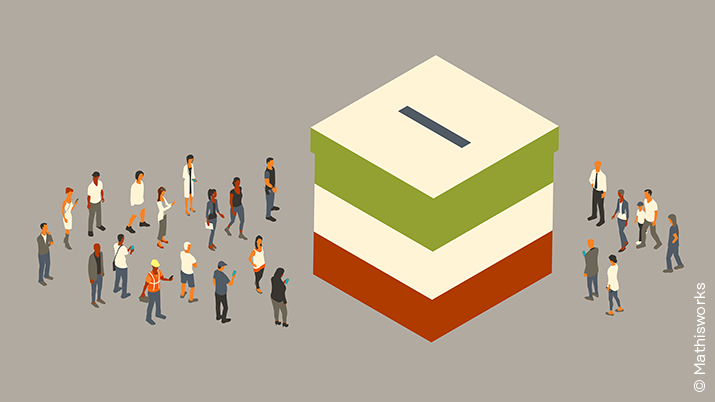We have had the opportunity to deal with the 2024 "super election year" with a certain regularity in previous issues of the «Voice», with an initial overview (see no. 42) aimed at illustrating both the extraordinary dimensions of the exercise (half of the global electorate, i.e. two billion people, called to the polls practically without interruption in 70 different countries) and its "strategic" relevance, so to speak. For once in agreement, the experts and political commentators evaluate it as a very reliable sort of "crash test" to verify the stability and resilience of democratic systems in the face of the worrying advance of markedly autocratic and illiberal regimes perceptible in almost all continents.
In the March editorial, with reference to Turkey, we thus commented favourably on the clear statement (in elections, it is true, at an administrative rather than political level) by the moderate candidates who are more open to cooperation with foreign countries, in the vast majority of the regions and urban realities of a country which serves as a vital link between Europe and Asia.
More recent (since they date back to the end of May / beginning of June) are the equally positive findings coming from two other protagonists on the international scene, India and South Africa, united by their common affiliation to two multilateral "fora" of growing influence and prestige, which are the G20 and the BRICS.
In the first case, Prime Minister Narendra Modi, undisputed dominus of the subcontinent from 2014 to today, has been reconfirmed in office for a third term, but his leadership will from now on be decidedly limited. The parties that traditionally support him - first of all the Bharatiya Janata Party (BJP) - have in fact obtained a result that is much lower than expected, resulting in the loss of around 60 seats compared to 2019. In the evaluation of experts, Modi must be acknowledged with the undoubted merit of having brought India, over the last decade, to levels of economic growth and well-being hitherto unmatched in its history. In relation to his failures, the "mother of all questions" pertaining to Indian society, that of "castes", continues unresolved, further exasperated by the climate of accentuated Hinduism promoted by the Prime Minister. Even some excessively restrictive measures (regarding freedom of the press for example) have ended up alienating some of his support. At this point, Modi will have to come to terms with the opposition (personified, alongside other lesser powers, by Rahul Gandhi's Congress Party), restoring as necessary, that political dialectic which, particularly during his most recent mandate, was found to be almost non-existent. Moving on to the second case, the African National Congress (ANC) - Nelson Mandela's historic party uninterruptedly in power in Pretoria since the end of apartheid in 1994 - has fallen for the first time, and rather significantly, below the crucial threshold of absolute majority (40.2 percent compared to 57.5 in 2019), finding itself in the unprecedented position of having to form a coalition government to stay in the saddle. Ramaphosa (an influential member of the ANC) correctly assessed the outcome of the polls as a sign of the desire of South African citizens «to encourage constructive collaboration between the main parties, for the benefit of the country and its inhabitants». The recent news of his re-election and the formation of a "national unity government" between the ANC and its direct rival, the Democratic Alliance (DA), a party with which the white minority can identify, consequently seems to be the most logical conclusion to ensure the country a period of prolonged stability, also necessary to regulate a less than brilliant internal economic situation.
Political scenarios in India and South Africa, two realities where we may acknowledge great diversity and not only geographically, suggest the need for an immediate and constructive "functional dialogue" between the forces of the majority and the opposition. This would consolidate internal balance and ensure an adequate position in the international field also in the future. It would lead to a path of virtuous development, particularly significant in the context of the Global South often at risk of authoritarianism, which cannot fail to please those who consider open political debate, though harsh at times, an indispensable founding element of any authentic system of democracy.
The outcome of the election in Mexico, which coincides with those of the two afore-mentioned countries, must be received with a note of greater caution. The election of Claudia Sheinbaum (as of 1 October the first woman to hold the prestigious position) came as no surprise, also because she was clearly supported by the outgoing president, Lopez Obrador. The extent of her success was however less expected, with the main government party "Morena" close to 60 percent of the vote. This cautionary note refers to the possible loss in the pre-existing system of checks and balances given the striking majority of seats in both houses of Parliament. To cite a far from unrealistic example, at the moment there is no possibility for the opposition to block the constitutional amendments, in an authoritarian sense, that the new president clearly intends to submit to close legislative examination once she has taken office.
Given the Mexican "attenuation" (so far only theoretical), the frequent fears that arose at the beginning of 2024 regarding the negative repercussions deriving from the "super election year" in terms of increased instability and a substantial weakening of democratic systems, would seem, for the moment, averted.
A totally different discussion obviously concerns the possibility of loosening the iron control over territories and populations exercised by certain totalitarian regimes through the holding of elections. To clarify, in North Korea, Russia, Belarus and in other dictatorships, the "ritual" appointments with the polls have taken place in 2024, without any doubts whatsoever regarding the final outcome of the vote even before they were held. In all those countries the autocrats already in power were reconfirmed in their positions very often with unanimous majorities. A not dissimilar scenario will also occur shortly in Iran, with the succession to the late president, in which – save for one exception - only radical and ultra-conservative candidates will compete.
To think that different results could emerge from the polls in these countries, apart from occasional demonstrations of protest by courageous dissidents or "heroic" voters, must be acknowledged as pure utopia.
Having examined the electoral outcomes in geographical contexts that are undoubtedly central in today's global geo-political system but at the same time geographically very distant from ours, the question that would seem legitimate to ask is how to evaluate, as a whole, the resulting vote from the European elections in June.
The discussion is obviously complex, not least due to the lack of homogeneity of the indications received from the 27 member countries, many of which - without beating around the bush - are decidedly negative. The press, both national and international, has dedicated extensive comments and varied interpretations to it, which is why every citizen-voter (a very different category, it should be noted, from that of the inhabitants of the European Union) can draw one's own independent conclusions.
For our part, not least for reasons of space, we will postpone other personal considerations on the topic to a future issue of the «Voice».
Reggente Marco Marsilli, Foundation President










